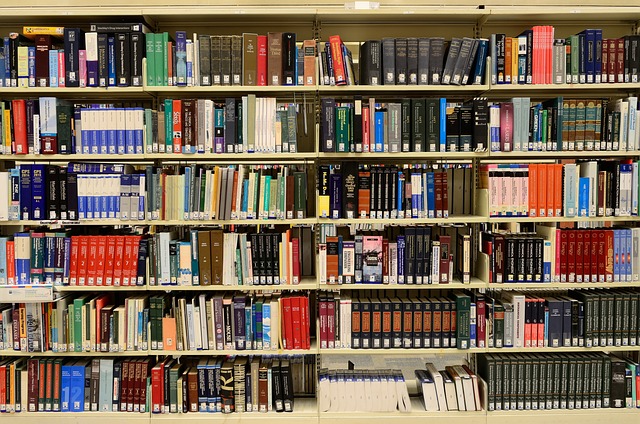
Image by ElasticComputeFarm from Pixabay
April 4, 2025 - SACRAMENTO, CA – The California State Library has been notified by the federal Institute of Museum and Library Services (IMLS) that, effective April 1, 2025, the 2024-25 federal grant awarded under the Library Services and Technology Act (LSTA) has been terminated.
In the current fiscal year (2024-25), the State Library received $15,705,702 in funding to assist local California libraries to provide programs and services, as well as supporting the services provided by the State Library to state government, policymakers, and the public. Over 21 percent of that funding has yet to be sent to California.
“We are deeply disappointed by this ill-informed decision, which immediately affects critical programs supported by these funds,” said Rebecca Wendt, California Deputy State Librarian. “The California State Library remains committed to serving all of the people of California and will explore alternative means to ensure continued access to essential library services.”
Library Services and Technology Act (LSTA) in California
The Library Services and Technology Act (LSTA) has provided critical funding for a wide range of programs that benefit communities across California. These funds support early learning and literacy programs, such as storytimes and play spaces for low-income families, summer reading initiatives that engage over a million children and teens, and programs that help at-risk youth develop workforce-readiness skills. Additionally, LSTA funds have enabled State Library staff to assist with the expansion of the Student Success Card program, ensuring that all California students receive a public library card by third grade.
Beyond literacy, LSTA funding strengthens communities by supporting diverse programs that align with California’s cultural, educational, and environmental priorities. Local libraries have used these funds to create climate education programs, community gardens, tool libraries, and telehealth privacy pods for individuals without home internet access. Libraries also provide valuable services for veterans, formerly incarcerated individuals, and tribal and rural communities. High-speed broadband initiatives, along with programs like California Revealed and the Cultural Heritage Disaster Preparedness Program, ensure that California’s history and cultural treasures are preserved and accessible to the public.
LSTA funding also expands access to learning resources for Californians of all ages. It supports the state’s only shared eBook collection, free access to major news publications like The New York Times and CalMatters for Learning, and databases that serve state employees, lawmakers, and the general public. The Career Online High School program, supported by State Library staff, enables adults to earn their high school diplomas through local libraries, while the Braille and Talking Book Library ensures that visually impaired Californians have free access to books in accessible formats.
Additionally, these funds help strengthen California’s library workforce through statewide training, leadership development, and tuition reimbursement for those studying to become librarians. Libraries also benefit from partnerships with state agencies, including the Departments of Aging, Public Health, and Technology, which allow public libraries to serve as vital hubs for government resources and community engagement. Moreover, LSTA funds support programs that promote government transparency, such as cataloging and maintaining access to federal and state government documents.
From fostering literacy and lifelong learning to preserving history and expanding digital access, LSTA funding plays an essential role in ensuring that California’s libraries remain innovative and responsive to the evolving needs of the communities they serve.
The California State Library will provide further updates as additional information becomes available.
About the State Library:
Established in 1850, the California State Library is the central reference and research library for state government and the Legislature. The library collection includes more than 4 million titles, 6,000 maps and 250,000 photographs, and includes an extensive collection of documents from and about the state’s rich history.The State Library also serves California’s local libraries, providing state and federal funds to support public libraries and deliver statewide programs and services.







